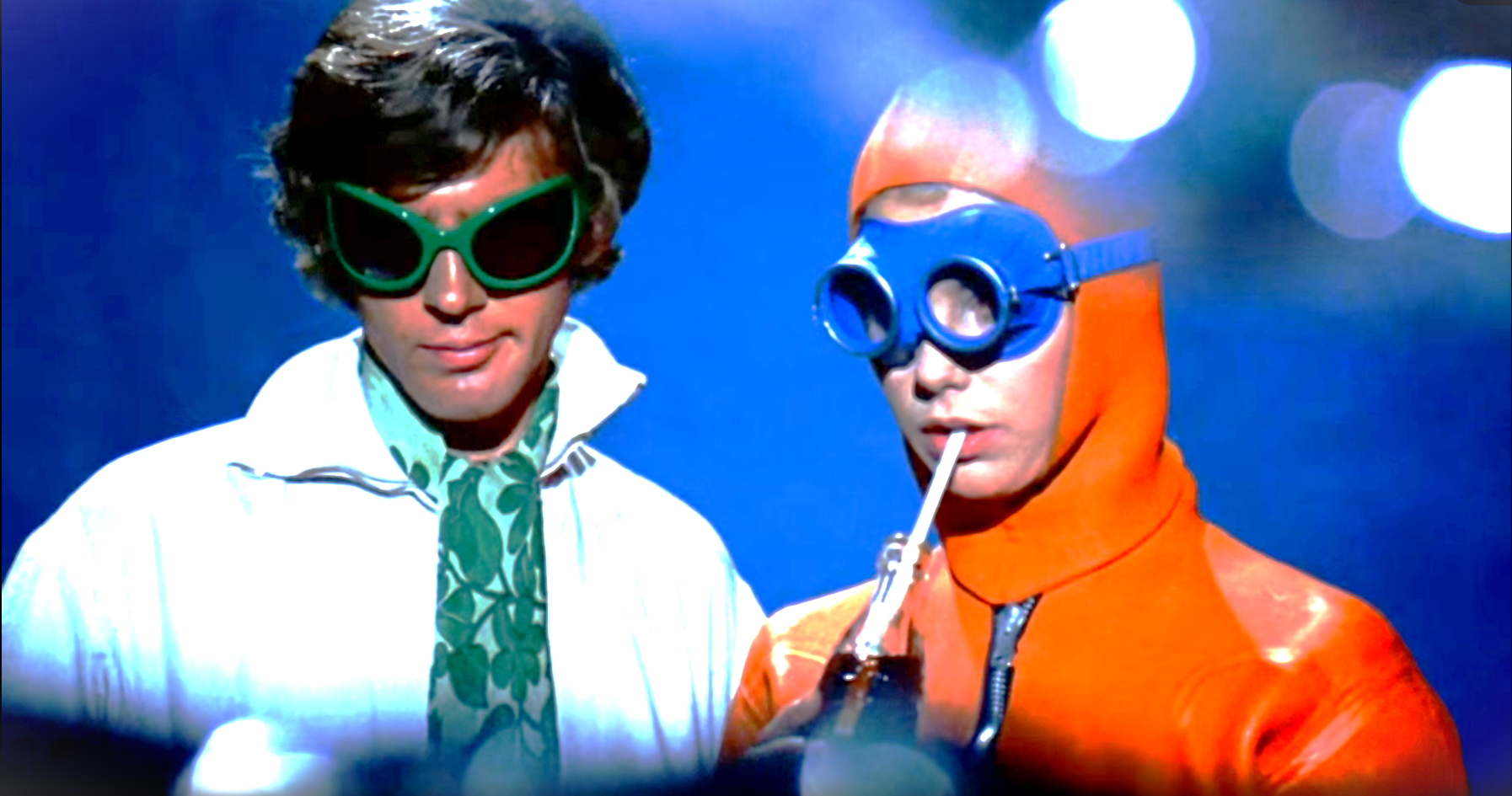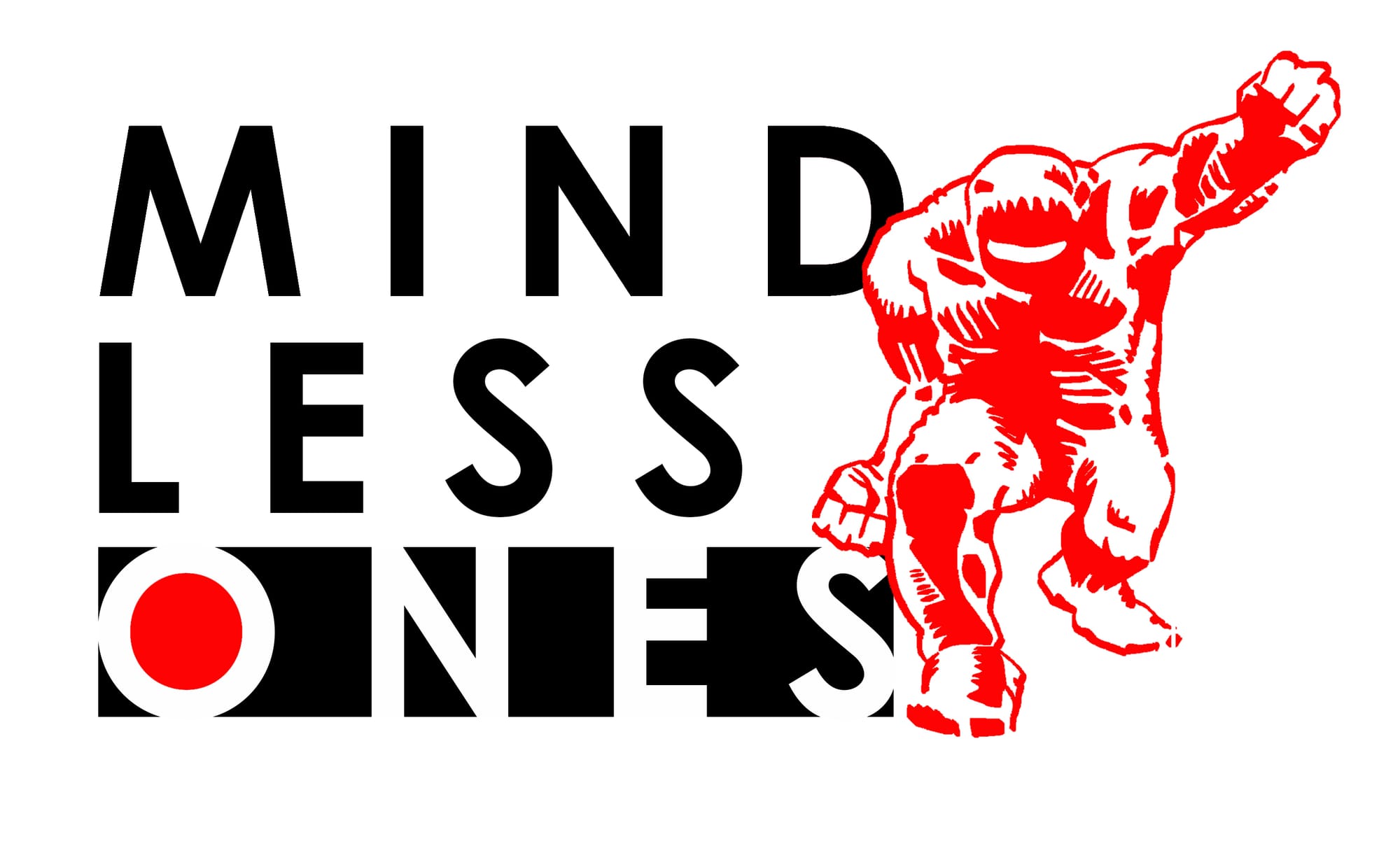The flotsam of the universe CANNOT hide you
The Heartless reversed. Graham Little. Mirror worlds. Andrew & Steven. The Black Racer. Wonderwall. Housebound. Shaky Kane.
ITEM
The Heartless, reversed
ITEM
The art of Graham Little
When I look at Little’s still figures, framed in the exotic every day, I think of beauty and I think of my mother. Not the woman she is, or was, nor the trope of the mysterious feminine. I’m specifically talking about growing up in a home where my mother was gone most of the time. I’m talking about that distance and that absence and its integration.
That mother – the one who wasn’t - is beautiful and glamorous. She exists in photographs and in the experience of missing her. She worked in London with strange people in glowing edit suites. She went to America on shoots. I watched her get dressed in the morning and leave. I heard her on the phone.
In Little’s work, the feminine form is soft yet austere. The setting always carries some of that softness and implies distance. This effect is created through angular elements such as the otherworldly geometric forms in the image above, wide windows, absent vanishing points, smudged texture and unfinished curves. Contemplating his work I’m forcefully reminded of that most well-worn cliché. The act of framing, especially the act of framing a person, insists on another kind of distance: spectrality. These are - so the cliché goes, and how I unavoidably feel - moments outside time.
The mother, who the woman in the chair reminds me of, is a horizon. From the far future and the deep past. The yearning I feel for her is immanent, like the light suffusing the seated figure. The real mother will die soon. She will be missed and celebrated for all that she was. When she leaves us, she will pass the other mother, and I will go back to Little’s paintings.
ITEM
MINDLESS EXPLORATION - mirror-world, Pattern Recognition (William Gibson, 2003), Doppelganger (Naomi Klein, 2023)
Set in its own time rather than in a lost future, Pattern Recognition traces the implications of Gibson's methodologies in action. His New York-born protagonist, Cayce Pollard, identifies “mirror-world” in the inverted roads and power systems of London, but her sensitivity to branding takes her into the real thing. The mirror-world is pure politics, cold war power struggles distorting endlessly, towers of light reflected. Nature of the zone: all of this can be intuited only through style, a glimmering catalogue of forms. The transformation here is purely personal, and the money man ubiguitous. The possibility of refusal is left for future chapters.
Sensitivity to branding is where the persona known as “Naomi Klein” started. Mirror-world is where it ends. An advocate for refusal - of corporate sigils, shock politics, and extractionism - Klein spends Doppelganger in a state of queasy acquiescence. In place of the old forum glamour of Cayce’s internet boyfriend Parkaboy, Klein has another Naomi to follow through the glass. Having identified “pattern recognition” as her gift, Klein isn’t oblivious to the parallels between her and the Wolf, mirror self, devoured/devouring. Crucially, she’s also aware of mirror-world’s penchant for abominable multiplication, the way pernicious fictions create their own reflections, equally restricted, equally “true”.
“It is another world. It is always another world.”
The pathologies Klein and Pollard deploy, and the expert lexicon of horror/SF the authors use to divine the moment, provide both awareness and material for mirror-world. There is a feeling of being trapped in a warped pane of glass, watching unrealities render around you. This should make you want to breathe, to break out. John Berger: “Calm is a form of resistance “ For a while it may also leave you lost, clinging to your internet boyfriend in the hope you might be real.
ITEM
ANDREW AND STEVEN, THOSE AMUSING BROTHERS
ITEM
SHUT THE FUCK UP WHEN YOU HEAR LOVE TALKING
“This world’s in the Twilight Zone, this is the fifth dimension
God, please blow the whistle, we need an intermission
My good deeds in front of your door, I’m standing by the entrance
With heavy baggage, my brother’s ashes
I seen tragic, I did dirt, smacked Death and held it to that n**** cabbage
Love, we killin’ greed, we killin’ homelessness
And I don’t give a fuck about this land I want ownership”
Kendrick Lamar - Purple Hearts ft. Summer Walker & Ghostface Killah (Official Audio)
ITEM
Wonderwall (Joe Massot, 1968)
Wonderwall Music (George Harrison, 1968)
Wonderwall (Oasis, 1995)

The Tennyson running the upper border of the Professor's spectacular arts and crafts Notting Hill flat reads:
When will the hundred summers die,
And thought and time be born again,
And newer knowledge, drawing nigh,
Bring truth that sways the soul of men?
So the wonderwall is that which is standing between the rich but static spiritual lassitude of The Daydream and an England renewed - in Gallagher’s words, 'an imaginary friend who's gonna come and save you from yourself.’
Harrison’s soundtrack plays this role in temporarily allaying Gallagher’s creative exhaustion. By midsummer 1995 all his songs were written and recorded, leaving him nowhere to go, yet with decades of laughably dull dadslop to come. D’You Know What I Mean - his last interesting recording, powdered, crunchy and utterly blank - is an appropriate over-blowing of Ski-ing, Harrison and Eric ‘Cunthand’ Clapton’s unsubtle cocaine squall. It plays while the mute and numbed Professor peers through the hole in the wall at a frozen fantasy landscape, effortlessly dreamt into being just next door, over there in the far reaches of exuberance and freedom.
DYKWIM was forgotten with a sneeze, but Wonderwall only grew in popularity over these thirty years, a ubiquitous anthem for an England keening to clamber over the crash barriers of history and return to our last, innocently snowblind summers. On Glastonbury Tor last weekend a ten year old boy stumbled over its opening chords time and again, his parents watching proud and patient, while The Prodigy - more depleted muscular revivalism - flashed and roared in the middle distance.
If these current back from the born again shows hold any wisdom for the English, it’s that the wall - which we’re just fucking stuck with - is valuable only in its cracks and apertures, and that all sides of the cultural abyss might need each other soon. So be like the Professor, consciously in love with your distant infatuations, with your senses glued to the tiny absences separating you.
ITEM
Make our ears burn
Tell just one person that you liked this newsletter. Word of mouth, more than any other form of promotion, is how creative works get noticed and sustain themselves. Thank you very much for reading.
ITEM
Housebound - (Gerard Johnstone, 2014)
Lockdown, the isolation did strange things to my brain.
My employer was unprepared for off-site working and required time to spin up the necessary infrastructure. After months they sent me a broken laptop and couldn’t resolve how to fix it without instructing me to break the stay at home order. By this point the novelty of zoom calls had dissipated as my friends dealt with the interpersonal horrors only their nearest and dearest could inflict on them. Relationships pushed to the edge by ‘that sound you insist on making when you fucking breathe’. I know one former couple that followed lockdown by fleeing to alternate ends of the continent. My experience was different.
Alone and understimulated, anxiety and depression humming behind my eyes, my mind turned self destructive. Things got weird.
I remember looking out of my kitchen window at someone enjoying their 20 minutes of approved outdoor exercise. I waved, they looked at me but just kept walking. For days after I wondered if this meant I was a ghost, this is what it would feel like after all… trapped and unreachable in the space I’d died. A few weeks later I saw a shadow darting away from me down the hallway, a shade cast on empty space, semi transparent and nearly human shaped. It scared the shit out of me. I remember putting a lighter to the green dust found at the bottom of a pot of Italian Mixed Herbs in an improvised attempt to expel evil, a ritual conducted more out of boredom than superstition.
Housebound speaks to a certain pandemic related horror even though the film predates all that by some years. It’s not the horror of plague and the collapse of norms but more towards the uncanny. It’s our own brains, organs optimised for pattern recognition scrambling for fresh input and when finding nothing, turning inward and digesting themselves. Fumbling for meaning in shadows.
It’s pretty funny too.
ITEM
GOD’S COP
One establishment figure who didn’t fall for the satanic panic [MO12] was Chief Constable of Greater Manchester James Anderton.
Anderton was an innovative copper, bringing new technology and tactics to a policing he understood as primarily a moral concern. A proponent of corporal punishment who dreamt of personally thrashing criminals till they repented, his morality manifested as aggressive policing of consensual relationships on Canal Street and turning a blind eye to abuse perpetrated by his good friend, Liberal politician, Cyril Smith.
He did alright. The ‘cop’ who ‘talks to god’ in The Fall’s Hit the North, the inspiration for the Happy Mondays’ God’s Cop. John Stalker never inspired any indie disco floor fillers.
Shaky Kane’s The A-Men has Anderton dying of AIDS, a martyrdom that inspires the police to start ‘…reading up on the bible and all sorts of weird shit.’ Caffeine Cops prowl the night, kicking in doors looking for sinners, jonesing for promotion to A-Men like the Fornicator Terminator, Hyper Kid, the Mondo Dalek.
In the early strips the Kirbyisms are less pronounced. A mutated wood cut Brett Ewins, hints of O’Neill’s Marshall Law, elements of that other monk-like fascist Dredd.
Collage is one of our weapons. We build mythologies and spiritual weapons from half remembered comics and lyrics. We make it weird, we make it funny. Shaky reKeystones the Cops. The poetry in the mythic register of Marvel filtered through Devon isn’t a million miles from the grotesque gnostic observations of Smith and Ryder.
And then it stops being funny, in the background of the strip where the A-Men berate a pinhead Shaky for killing the Son of God in their ‘verse, a dislocated speech bubble, a gut punch -
‘I was just a kid.’
‘Just a kid’.
Good News Bible: The Complete Deadline Strips of Shaky Kane is published by Breakdown Press.
